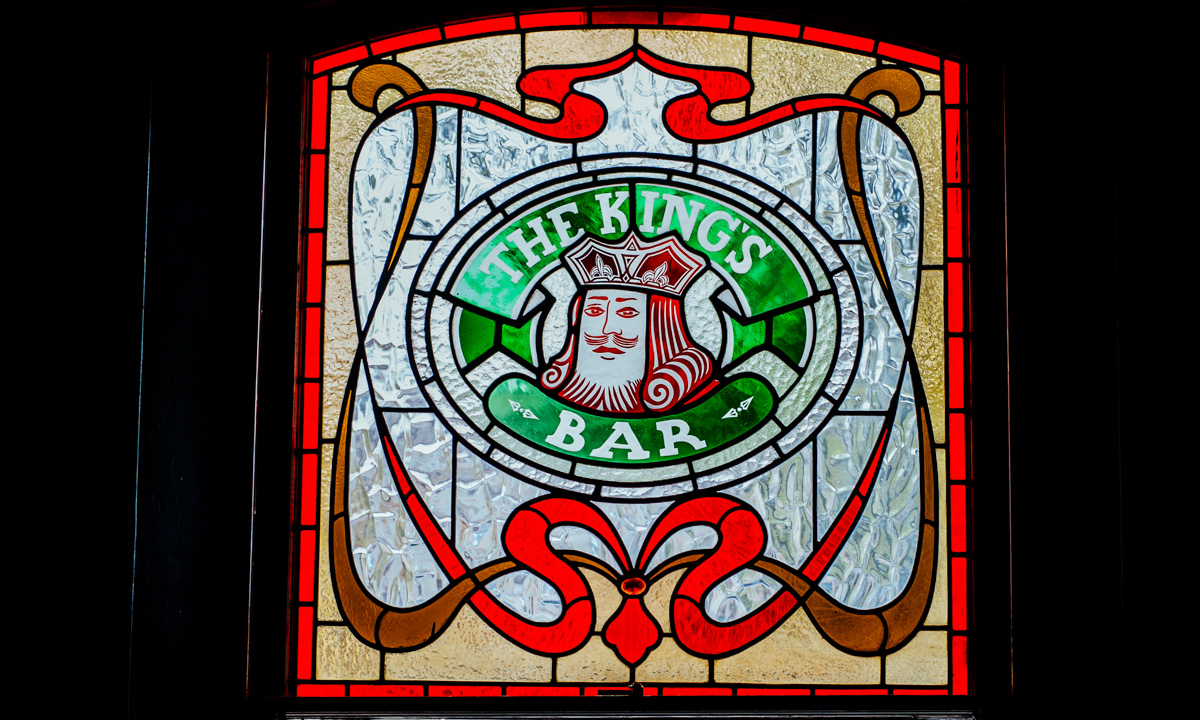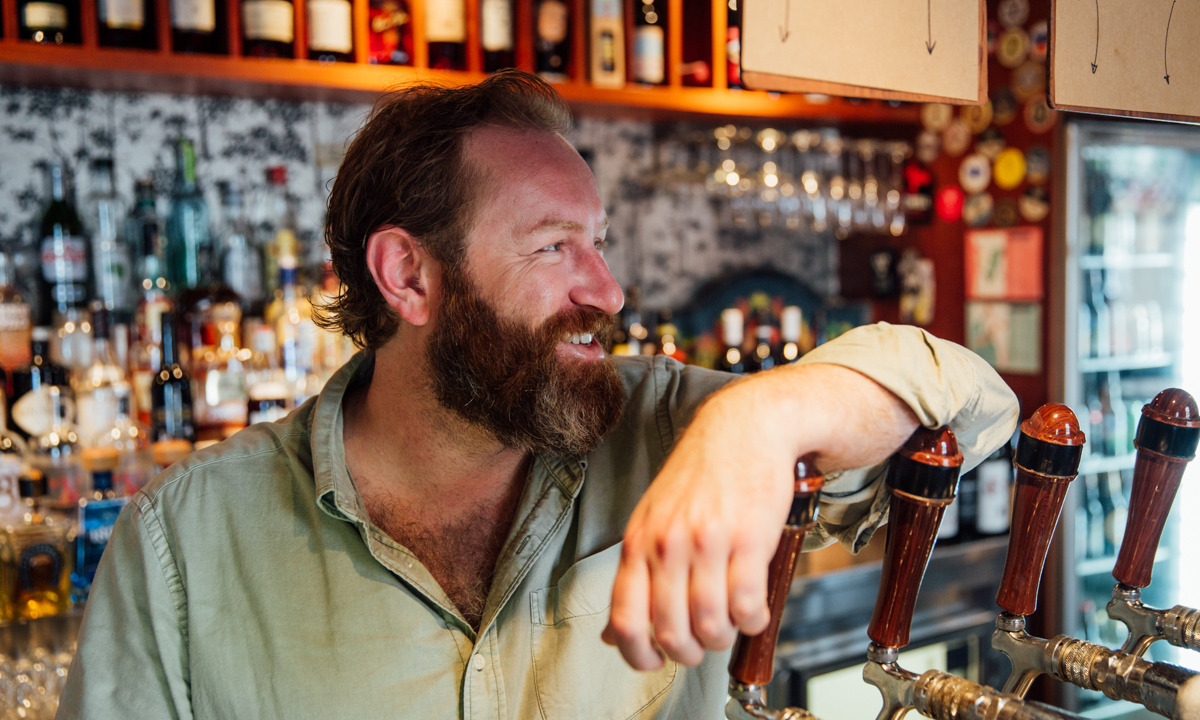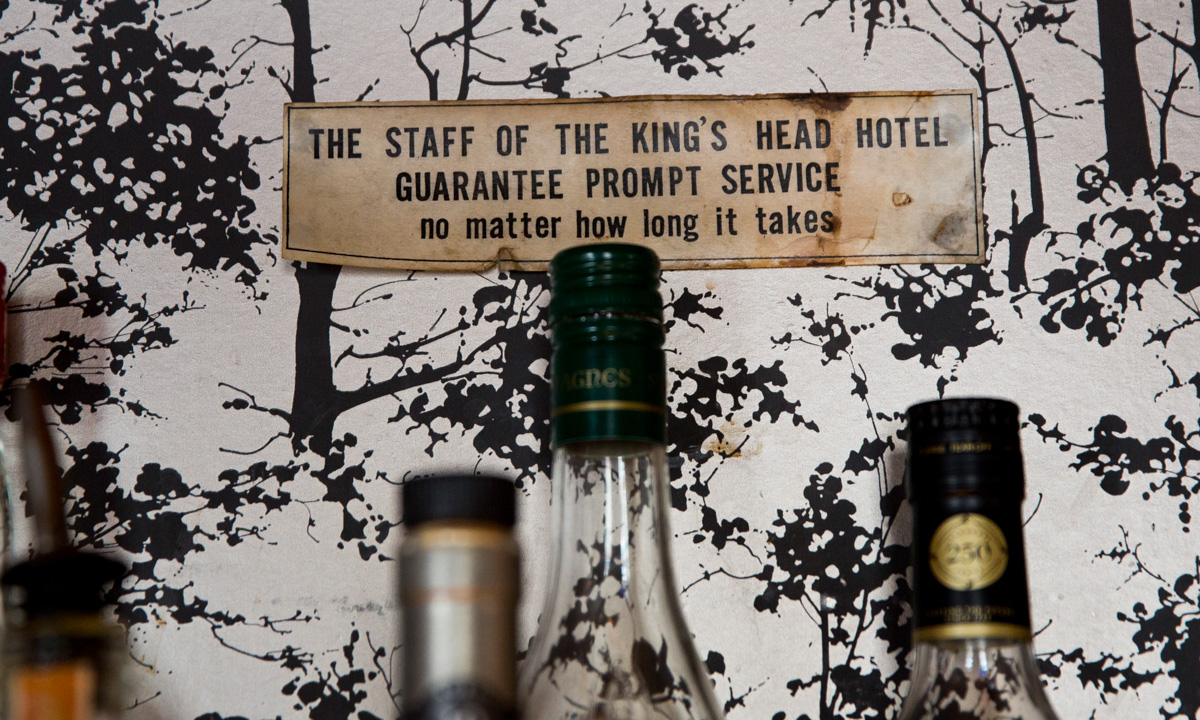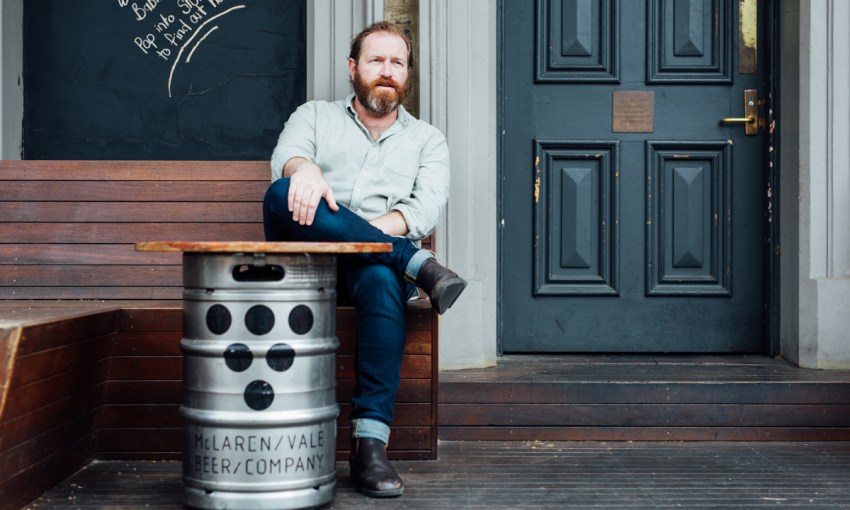With the King's Head's rites finally read by its liquidators last week, publican Gareth Lewis reflects on the pub's slow demise from COVID-19 since its death knell first rang on 13 March.
The King’s Head’s long, slow goodbye
SPECIAL REPORT: COVID-19 ADELAIDE
Last week, when liquidators were called in to the King’s Head, a six-week ordeal and a nearly 12-year-old business came to an end.
Gareth Lewis, the King’s Head’s publican, recalls the strange feeling in the air on the afternoon of Friday, 13 March – the day it was announced mass gatherings of 500 or more people would be banned from the following Monday.
“It was a beautiful day, and you could just tell there was a real nervousness in the air, and it didn’t have same feeling it did that morning even,” he says.
For Gareth, this announcement was foreboding mostly for the other half of his professional life: General Admission Entertainment, the events business he also runs.
The company had several events scheduled for the coming months: a Montaigne-headlined show happening on 28 March at Adelaide UniBar (a venue GA also runs), and tickets to the 2020 edition of Beer & BBQ Festival were about to go on sale.
CityMag speaks with Gareth over the phone on Friday, 24 April, the day GA Entertainment would have been putting on the local leg of Groovin the Moo at the Adelaide Showground – alas, coronavirus.
Immediately following the mass gatherings announcement, GA Entertainment was “put on ice,” Gareth says, and remains on hiatus for at least the foreseeable future.
The effects of the global pandemic were swift in the case of GA Entertainment. The business was immediately “put on ice”. But the King’s Head’s suffering was only beginning.

The story is by now familiar: as restrictions on social gatherings escalated, the business saw sharper downturns.
In the week of the one-person-per-four-square-metres rule being implemented, the pub saw a 50 per cent drop in revenue.
“We let go of all but three of our casual staff in our first week, and kind of planned to keep them on the week after, but then the total shutdown of pubs happened,” Gareth recalls.
Following the shutdown, the business decided to only trade from its bottle shop, Sturt Street Cellars. The first few days were encouraging, but reality hit by the end of the first week: sales would not keep the lights on.
The King’s Head’s three full-time staff were let go, and Gareth and his business partner, Ben Sampson, ran the pub alone in its last few days, culminating in a shutdown sale on Friday, 3 April.
This was not officially the end.
“Our initial thought was we absolutely want to come back and nothing changes,” Gareth says.
“You’ve then got to go through all the permutations – you’ve got to speak to all the interested parties, your business partners, the landlord, your accountant, try to put some numbers around that.
“We started looking at the options of, where do we go from here, and how long can we last, and how much money is it going to cost to hang on? And that’s where we ended up this week.”

Gareth Lewis behind the bar in 2016
The decision to close was not easy for Gareth; the pub had been a daily presence in his life for 12 years and served as the home base for GA Entertainment, which operated from upstairs.
“It’s been probably the most emotional three or four weeks of my life, the last month. There’s been a lot of tears and some really difficult conversations, and conversations you never thought you’d have to have,” he says.
Through the King’s Head’s disparate ownership group – some of whom are based outside of SA – emotion was taken out of the equation. The decision became purely mathematical.
“In a way it was good for them to have an influence on the decision,” Gareth says.
“Because potentially, if it was just me, I would have gone, ‘Fuck it, we’ll get it done. We’ll plough on,’ and we could end up a million dollars in debt by the end of the year.
“Having that black-and-white, on-paper evidence to say, ‘Ok, you need to be objective about it,’ it was probably good in the end.”
News of liquidators coming into the pub broke on Thursday, 23 April.
The King’s Achilles
Being among the first to fold since the advent of COVID-19, it’s logical to wonder what left the King’s Head so vulnerable.
Gareth doesn’t believe the pub was in any “worse situation than a lot of people.”
“We were always trying to improve the place, we never really saved for a rainy day, all that kind of stuff,” he says.
“Whether that leaves us in a better or worse position than other people, at the end of the day we just decided that it’s going to cost x to get us to the end of the year, or six months’ time, and after that we’re not really sure how much is going to return or how quickly it’s going to return.”
A factor, too, were running costs; the result of a core principle of the pub: its fierce South Australian parochiality. The King’s Head launched in 2008 with strictly SA-sourced beer, wine and produce.
This meant trading with a lot of small businesses, which contributed to higher operating costs when compared with large pub groups, which could use purchasing power to their advantage; or pubs with tap contracts, which were afforded cheaper (but internationally owned) beer.
“From the get-go, we’re always going to be on the back foot financially, and that’s been a battle over the last 10 years, more,” Gareth says.
He recalls the tiring early days of educating the pub’s clientele about why they didn’t stock Hahn Super Dry or West End Draught, all the while trying to keep the ownership group within the pub on side.
“We had shareholders in the pub saying, ‘Why don’t we just give up on it? Fuck it. We might as well stock James Boag’s,’” he laughs.
“We were very much, ‘Look, we’ve come this far, let’s just push on. I’m sure it’s going to work.’
“And I wasn’t sure. You’re never sure. You hope it is, and you believe in what you’re doing, but it doesn’t necessarily have to work. But it did, for a while.”

In 2008, the wine industry was well-established, but there was no Eat Local campaign promoting local produce, and the local beer industry – a huge focus for the pub – was thin at best.
Of the pub’s eight beer taps, four were designated to Coopers, and the rest to whoever had enough beer available to stock them.
“We probably had a couple of Lobethal Bierhaus, Gulf Brewery, Vale launched just after we took over. But there were weeks where we couldn’t actually find beers to put on those taps,” Gareth says.
“It’s weird to think now there’s 50 or 60 independent breweries in South Australia – which has all grown up from that time from when we took over.”
As the city changed, the pub did too. The small venue licence saw new restaurants and bars filter throughout the city, bringing new and creative food and drink experiences. In response, the King’s Head shuttered it’s a la carte restaurant and launched Sturt Street Cellars.
The pub’s parochiality eventually caught on. Staff stopped having to explain to punters why there was no Carlton Draught on tap. Gareth and his business partners were vindicated.
“Even this year, even in the last couple of months, there was nothing wrong with that business model of pushing the local stuff,” Gareth says.
“People do continue to have an appetite for [local producers], and I think they should, and they will do more after this pandemic shitshow.”
CityMag asks if the coronavirus makes the pub’s closure any easier to deal with.
“It sort of gives a little bit of comfort that if we weren’t in this – horrible word – unprecedented time, this wouldn’t be happening, but I don’t know,” he says.
“It’s still really raw and I’m not really sure what to make of it. I’m pretty keen to have a couple of months off and reflect, to be honest.”
We ask Gareth if he considers any of Adelaide’s current love for South Australian produce to be part of the King’s Head’s legacy.
“Who knows, it’s pretty intangible,” he laughs.
“If I could pick anything that I hope people remember, it’s that we supported the small guy.
“We were a little bit lefty and we annoyed people, we pissed people off a bit, but we didn’t follow the model of employing a stereotypical female bartender and male bartender, we were a real open book.
“So if people could remember us as that, and as a place where anyone could feel comfortable at any point in time, then that would be great.”
Gareth’s council gambit
Keen though he may be for some time off to reflect, Gareth was quick to join the race for the City of Adelaide’s central ward once the pub’s doors closed.
It’s Gareth’s second run for the seat on council, after an unsuccessful attempt in 2014.
Just as in 2014, Gareth hopes to be a representative on council for the hospitality and events industry, particularly as we approach the period of recovery from COVID-19.
“People take for granted all [of] what gets lumped into this horrible term ‘vibrancy’, [which] is made up of hundreds of little businesses who all run on paper-thin margins,” he says.
“They’re all investing their time and their passion into their little business, which goes into making Adelaide what it is.
“I’ve always thought it’s really terrible that they don’t have a direct voice on council.”
Having traded in the CBD through the crisis as long as was feasible, Gareth is quick to criticise the council’s response to the coronavirus thus far.
“The hardship policy they put out in March has been the only tangible thing they put out, and I thought it was tokenism,” he says.
“It didn’t mention any direct rate relief or path to rate relief. And that’s essentially what they need to do.
“To expect any business – whether it’s a pub or a restaurant or a dry cleaner – to pay their rates if they can’t trade is just nonsensical, and it’s totally to the detriment of what the city should be encouraging.
“We want businesses to be able to reopen on the other side of this, not having gone into ridiculous amounts of debt, not having plunged their owners into perilous financial situations.”
As CityMag laid out earlier this month, the supplementary election has the potential to be hugely consequential for the city – with the power of the council’s two voting blocs hanging in the balance. You can read more on the rest of the council’s supplementary election candidates here. Voting closes Monday, 11 May.




